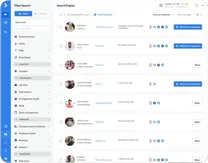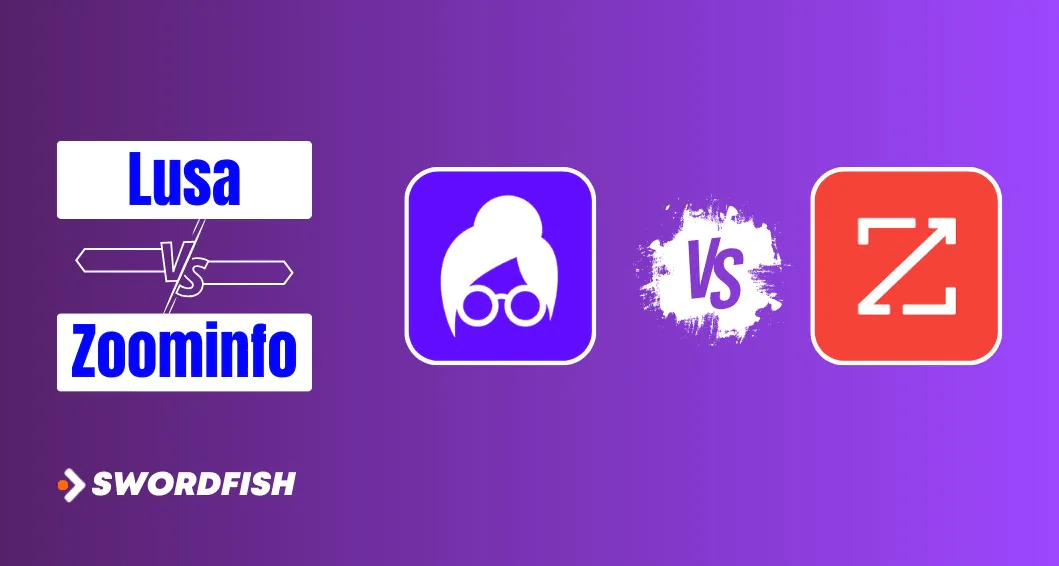
Lusha, has a whopping 45 million direct contacts in North America, and ZoomInfo, crunching through a mind-boggling 1.5 billion data points every day. Both are feature rich and serve the same purpose.
With that mentioned, choosing between Lusha and ZoomInfo might feel like picking the right tool from a cool toolbox. But really, it boils down to what your business needs most.
In this friendly face-off, we’ll discuss what sets each apart – from their nifty features, how they seamlessly integrate with other tools, to what it’ll cost you. By the end, you’ll have a clear path to one choice in Lusha vs Zoominfo.
What is ZoomInfo?
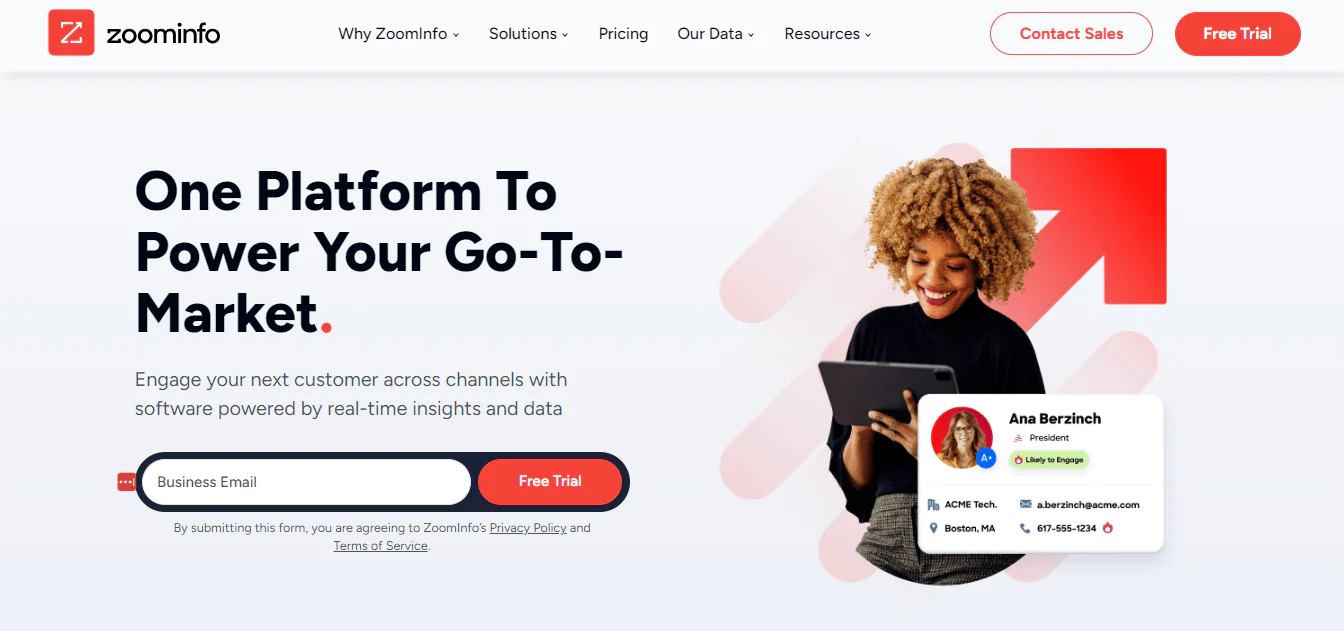
ZoomInfo, founded in 2007 by Kosmas Karadimitriou, Yonatan Stern, and Henry Schuck, stands as a beacon in the business intelligence industry. This platform is curated to furnish information about both companies and individuals.
It simply enables businesses to forge connections with the right decision-makers. With its great database covering a spectrum of industries and global regions, ZoomInfo has since been increasing in popularity over the years.
The primary feature of ZoomInfo, as Lusha alternative, lies in its precision when it comes to providing contact information, in-depth company insights, and professional profiles.
This level of accuracy proves to be important in nurturing and boosting lead generation, as well as refining sales and marketing. If you’re on the lookout for a tool that gives you access to reliable contact information and accurate company details, ZoomInfo can be a fitting choice.
What is Lusha?
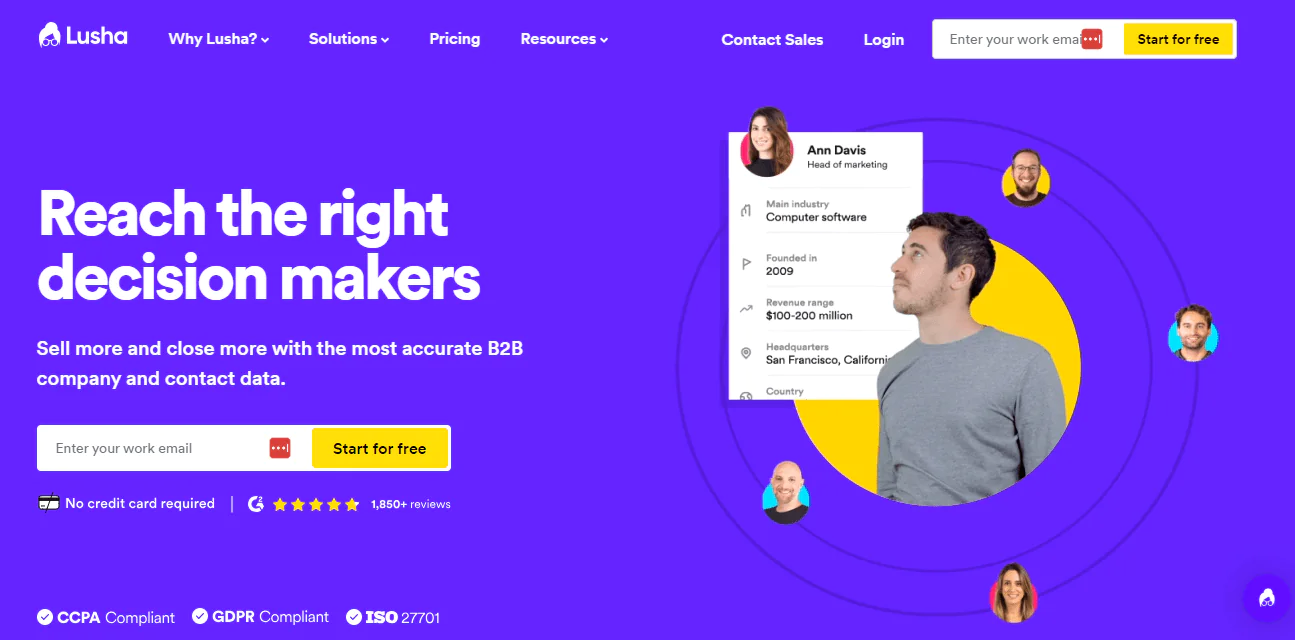
Lusha, designed with a mission to change go-to-market intelligence, was founded in 2016 by Assaf Eisenstein and Yoni Tserruya. This platform caters to sales, marketing, and recruitment teams, offering them a powerful tool to steer through professional connections and company information.
Unlike many other platforms, Lusha is the Zoominfo alternative that prides itself on its easy and untroubled user experience, sparing users from the cumbersome onboarding processes often associated with such tools.
Through easy Salesforce and API integrations, Lusha ensures that user databases remain fresh and continuously enriched.
What truly sets Lusha apart is its commitment to data privacy and security. The platform proudly holds accreditation under ISO 27701, the highest international privacy standard. This means users can operate with the utmost confidence in the protection of their data.
Lusha vs ZoomInfo: About
Let’s take a look at how the tools compare when it comes to numbers –
About Lusha
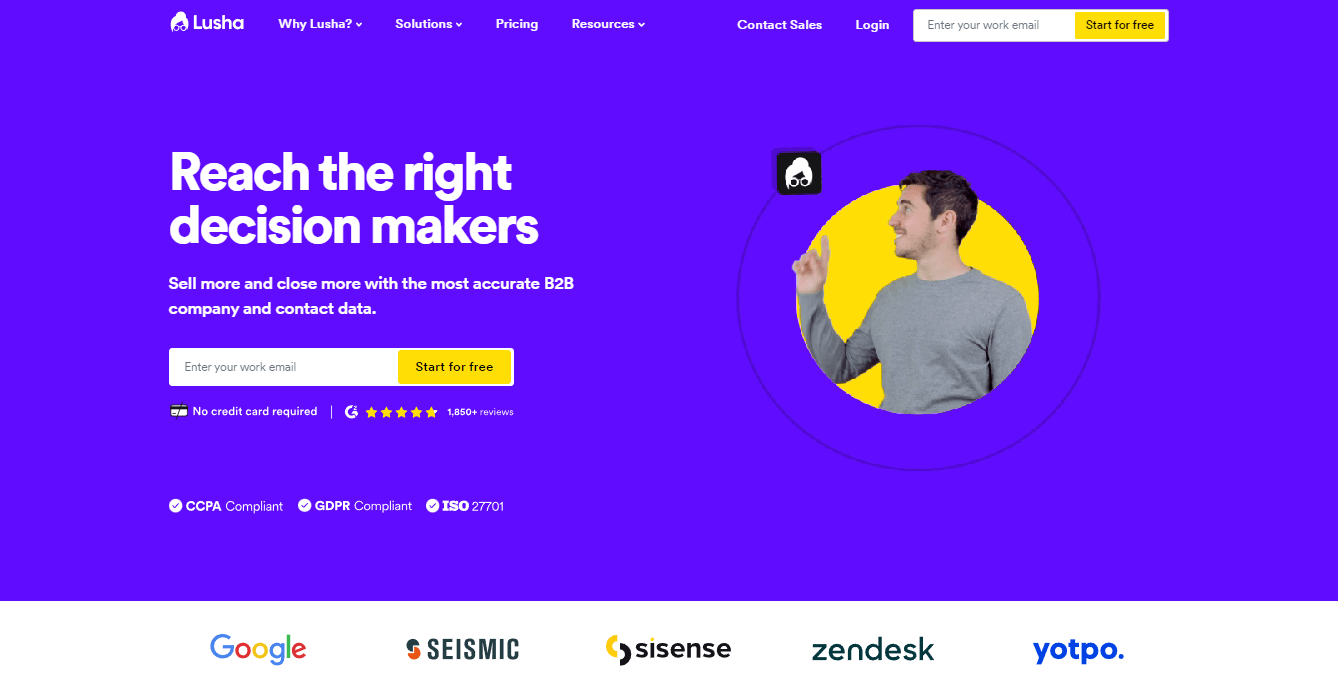
Lusha’s database is nothing short of impressive and it’s safe to say they have made a big difference for businesses looking to grow.
For example, CARTO, a company that helps with location information, got three times more new potential customers after using Lusha. This shows that Lusha can not only find leads but also make reaching out to them much more effective.
Devere, a global financial consulting company, closed 25% more deals and saw an incredible 1000% increase in the money they made compared to what they spent on Lusha. This means Lusha really helped them make more profit.
Lusha’s standout numbers are:
- Over 45 million direct contacts in North America.
- 50 million enterprise business profiles.
- 44 million SMB business profiles.
- 21 million GDPR-compliant European contacts.
Oracle NetSuite, a popular business management tool, had 10 times more people turn into actual customers. This shows how effective Lusha’s information is in getting real results for businesses.
In the same way, Insight Global, a big staffing and consulting company, had a huge 142% increase in successful product demos. This number shows how important Lusha can be in making sales efforts more successful, which is a huge part of business success.
About ZoomInfo
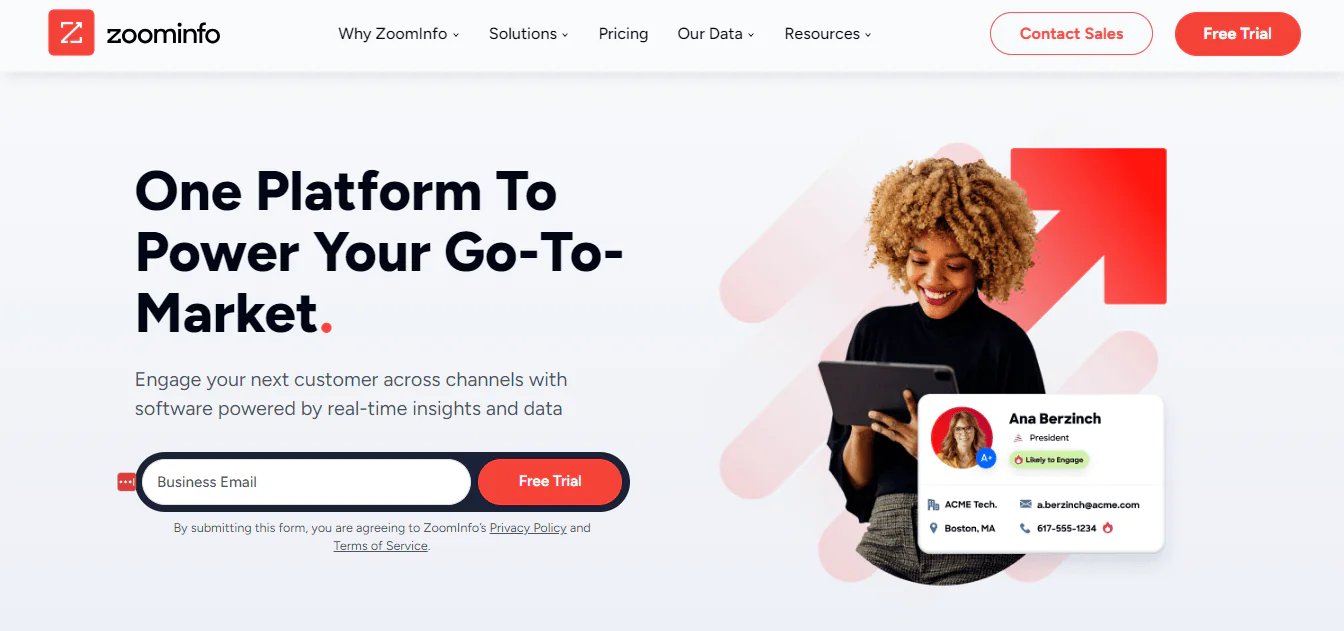
ZoomInfo is a master of business intelligence, and its impact is validated by a community of over 35,000 satisfied customers.
The results? Staggering!
Businesses report a 100% boost in win rates, a notable 70% reduction in marketing expenses, and an impressive 63% surge in overall productivity.
The all-rounder database at ZoomInfo has pushed them to target high-value accounts, gathering in more substantial deals.
What distinguishes ZoomInfo is its unique blend of foundational data and real-time buying signals. This ensures that businesses connect with buyers who are on the cusp of making crucial decisions.
Here’s a look at ZoomInfo data:
- Over 600 million professional profiles are meticulously cataloged, with 260 million being publicly accessible.
- 1.5 billion data points are processed daily.
- Analysis of 1.3 billion company profiles, with a hundred million in the public domain.
- ZoomInfo boasts an impressive 135 million verified phone numbers.
The global reach of ZoomInfo is equally formidable. Their expansion beyond North America equips businesses to refine their global strategies with access to:
- 34 million company profiles.
- 200 million professional profiles.
- 45 million mobile phone numbers.
But how is this wealth of data acquired? It’s a demanding three-step process.
ZoomInfo collects data from various sources like the web, third-party providers, community contributions, and a dedicated research team.
This raw data, although plentiful, needs refining to be useful. ZoomInfo excels in turning this extensive data into practical insights. They use advanced technologies like AI, machine learning, natural language processing, along with a team of skilled data scientists for verification.
To keep the information up-to-date and accurate, ZoomInfo constantly monitors the data. They perform regular checks and updates, swiftly integrating any detected changes. This ensures that the data remains reliable and ready for you.
Lusha vs ZoomInfo: A Quick Comparison Table
Here is a table comparing the two tools side by side –
| Features | Lusha | ZoomInfo |
|---|---|---|
| Contact Data Availability | Lusha offers access to 45 million contacts in North America. | ZoomInfo boasts a database of over 600 million professional profiles and 135 million verified phone numbers. |
| Company Data Availability | Lusha provides information on 94 million global companies. | ZoomInfo analyzes data on over 1.3 billion company profiles. |
| GDPR Compliance | Lusha is fully GDPR compliant, ensuring the highest standards of data privacy and security. | ZoomInfo also adheres to GDPR regulations, prioritizing data protection and privacy. |
| CCPA Compliance | Lusha complies with CCPA requirements, ensuring data privacy for California residents. | ZoomInfo is CCPA compliant, demonstrating its commitment to safeguarding personal information. |
| Data Accuracy | Lusha delivers fresh, direct, and verified contact data, sourced from various channels. | ZoomInfo provides accurate and actionable insights by processing vast amounts of data through advanced technologies. |
| Integration Options | Lusha seamlessly integrates with CRM and marketing automation platforms for streamlined data utilization. | ZoomInfo offers integration with CRM, marketing automation, and various sales platforms, enhancing workflow efficiency. |
| Browser Extension | Lusha offers a browser extension for quick access to contact information while browsing. | ZoomInfo provides a browser extension for instant access to valuable data during online research. |
| API Access | Lusha users have API access for seamless integration and enhanced data utilization. | ZoomInfo grants API access, allowing for custom integration and utilization of data in various applications. |
Lusha vs ZoomInfo: Features
Here is what Lusha and ZoomInfo have to offer in terms of their stand-out features –
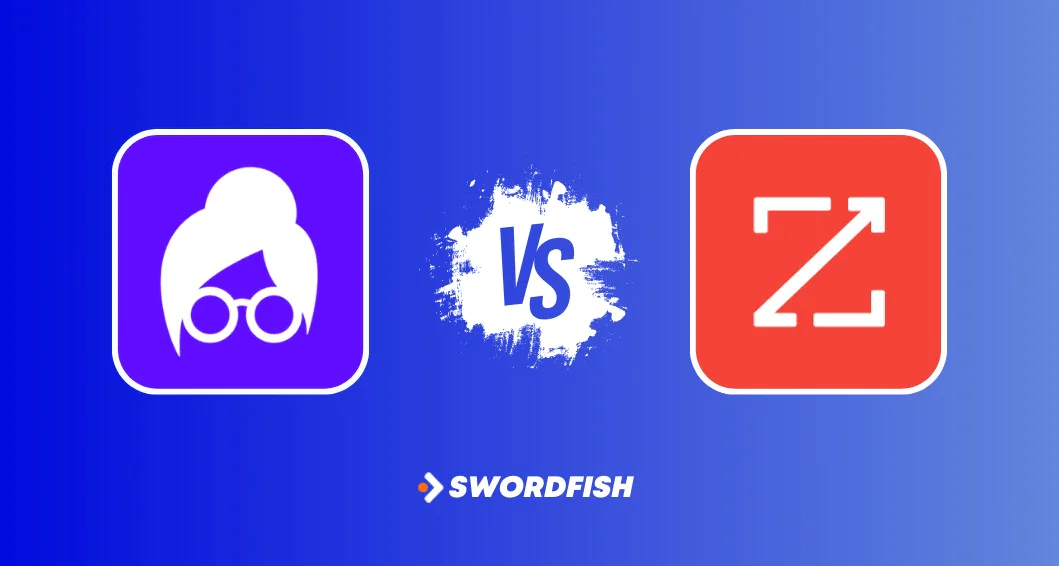
Lusha Features
- Direct Contact Information: Lusha provides accurate and up-to-date contact details, including direct phone numbers and email addresses.
- Company Data Enrichment: It offers detailed insights about companies, such as industry, size, location, and key decision-makers.
- Prospecting Platform: Lusha’s platform allows users to build targeted prospect lists with specific filters and export them to their CRM.
- Chrome Extension: With the Chrome extension, users can instantly retrieve contact information from various online platforms, including LinkedIn and websites.
- List Management and Export: Users can efficiently manage and export prospect lists, streamlining their outreach efforts.
- Usage Analytics: Lusha provides basic analytics to track and measure the effectiveness of prospecting efforts.
- Team Collaboration: Allows for basic team management and shared access to credits for seamless collaboration.
- GDPR and CCPA Compliance: Lusha adheres to data privacy regulations, ensuring that user data is handled with the utmost care.
- Integration Capabilities: It integrates smoothly with various CRM and marketing automation platforms for improved workflow efficiency.
- Global Data Availability: Lusha offers a vast database of contacts, including millions in North America, Europe, and around the world.
- Dynamic and Accurate Data: Lusha’s data is constantly updated and verified to provide reliable information for outreach efforts.
- Verified Mobile Phone Numbers: Lusha includes a substantial database of verified mobile phone numbers for more direct communication channels.
ZoomInfo Features
Here is what ZoomInfo offers in features –
- Comprehensive Company Insights: ZoomInfo provides in-depth information about companies, including size, industry, location, and key contacts.
- Accurate Contact Data: Offers verified and up-to-date contact information for decision-makers and professionals across various industries.
- Intent Indicators: Identifies buying signals and engagement levels to help businesses target leads at the right time.
- Direct Dial and Mobile Numbers: Provides direct contact numbers to facilitate direct communication with prospects.
- Revenue Calculator: Lusha has introduced a revenue calculator to help businesses assess the potential impact of using their services on their sales performance. This tool can provide valuable insights into how Lusha’s solutions can contribute to increased sales and closed deals.
- Integration Capabilities: Seamlessly integrates with various CRM and marketing automation platforms to streamline workflows.
- Advanced Search Filters: Allows users to refine searches based on specific criteria like industry, job title, company size, and more.
- Sourcing Intelligence: Provides insights on potential candidates, helping streamline the recruitment process.
- Engagement Tools: Offers tools for outreach, communication, and lead tracking to enhance sales and marketing efforts.
- Data Accuracy and Compliance: Ensures GDPR and CCPA compliance, and maintains high standards of data accuracy and privacy.
Note: Reachout here LeadIQ vs zoominfo.
Lusha vs ZoomInfo: Integrations
So how do the two tools compare in terms of integrations? Here it is –
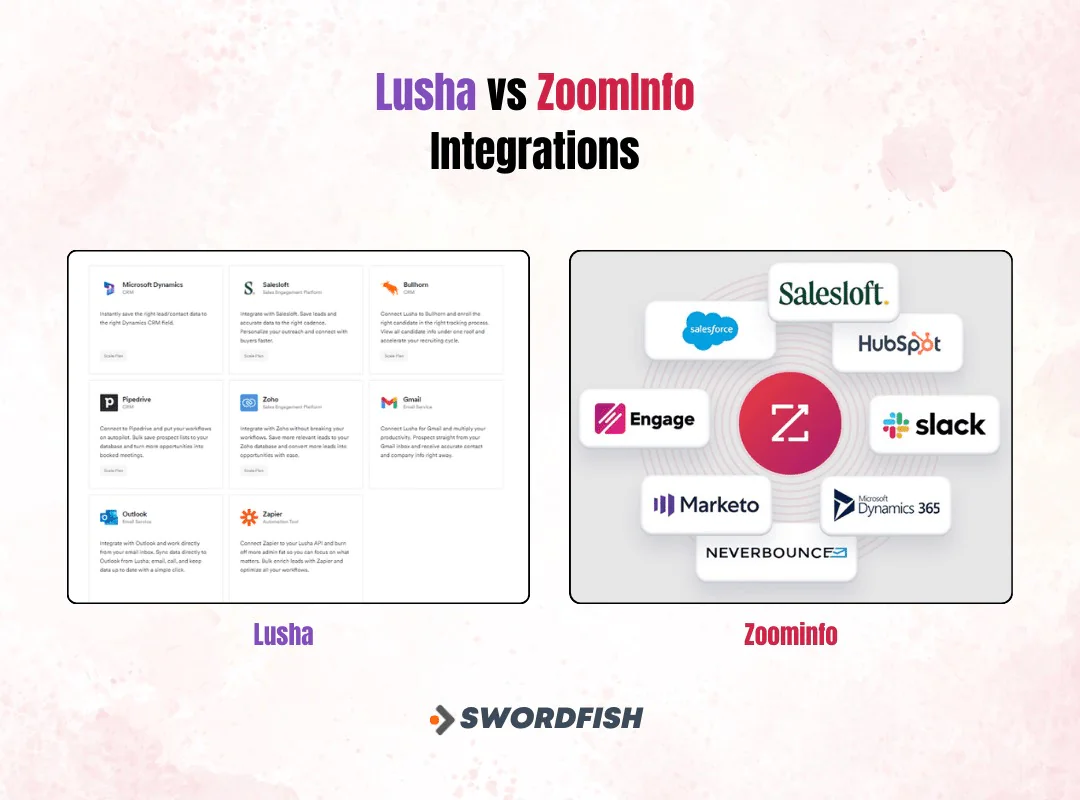
1.Lusha Integrations
Here’s how Lusha integrates with some of the most popular platforms:
Salesforce:
With Lusha’s Salesforce integration, you can effortlessly save lead and contact data directly to the appropriate Salesforce field. This means enriching your Salesforce database takes mere seconds, making your sales process more efficient.
HubSpot:
Integrating Lusha with HubSpot supercharges your CRM. You can effortlessly transfer targeted lists from Lusha to HubSpot, ensuring you capture the most valuable leads for your business.
Outreach:
By connecting Lusha to Outreach, you ensure that every lead is sorted into the correct sequence. This helps you manage your sales pipeline more effectively, from nurturing leads to converting them into customers.
Microsoft Dynamics:
Instantly map the right lead and contact data to the appropriate Dynamics CRM field, streamlining your data management process.
Salesloft:
Integrate Lusha with Salesloft to save leads and accurate data directly to the right cadence. This enables you to personalize your outreach and connect with potential buyers more efficiently.
Bullhorn:
Link Lusha with Bullhorn to ensure the right candidate is enrolled in the correct tracking process. With all candidate information consolidated in one place, you can accelerate your recruiting cycle.
Pipedrive:
Connecting Lusha to Pipedrive automates your workflows. Easily save prospect lists to your database and convert more opportunities into booked meetings.
Zoho:
Integrate with Zoho without disrupting your existing workflows. Save more relevant leads to your Zoho database and convert them into opportunities seamlessly.
Gmail:
Connect Lusha to Gmail and enhance your productivity. You can prospect directly from your Gmail inbox and receive accurate contact and company information instantly.
Outlook:
Integrate Lusha with Outlook to work directly from your email inbox. Keep your data up to date with a simple click, ensuring your communications are always on point.
Zapier:
By connecting Zapier to your Lusha API, you can streamline your workflows and focus on what truly matters. Automate lead enrichment and optimize your processes.
2.ZoomInfo Integrations
ZoomInfo offers seamless integrations with a variety of popular CRM, marketing, and sales platforms, enhancing its functionality and making it a versatile tool for businesses. Some of the key integrations include:
Salesforce:
ZoomInfo integrates seamlessly with Salesforce, allowing users to access ZoomInfo’s extensive database directly within the Salesforce interface.
This empowers sales and marketing teams to enrich leads, contacts, and accounts with accurate and up-to-date information.
HubSpot:
For HubSpot users, ZoomInfo provides a powerful integration that enables the enrichment of leads and contacts with detailed, high-quality data. This integration enhances lead scoring, segmentation, and personalized communication strategies.
Microsoft Dynamics 365:
ZoomInfo integrates with Microsoft’s Dynamics 365 CRM, facilitating easy access to enriched contact data for better targeting and engagement. This integration helps in improving the efficiency of sales and marketing efforts.
Outreach:
Outreach users can leverage the ZoomInfo integration to enhance their outreach campaigns. By enriching prospect profiles with accurate contact information, users can improve the effectiveness of their sales outreach.
3. SalesLoft
The ZoomInfo integration with SalesLoft empowers sales teams with valuable data to personalize outreach efforts. It provides essential contact details and company information within the SalesLoft platform.
Marketo:
Marketers using Marketo benefit from the ZoomInfo integration by enriching their lead database with precise contact information. This leads to more effective lead nurturing and targeted marketing campaigns.
Zoho CRM:
ZoomInfo’s integration with Zoho CRM enhances lead and contact data by providing additional insights for more effective sales engagement. This integration is valuable for businesses utilizing Zoho CRM for their customer relationship management.
SugarCRM:
The integration with SugarCRM enables users to seamlessly access and enrich their customer data with ZoomInfo’s accurate information. This enhances sales and marketing efforts within the SugarCRM platform.
Here’s a table comparing the integrations of ZoomInfo and Lusha
| Integration | Lusha | ZoomInfo |
|---|---|---|
| Salesforce | ✓ | ✓ |
| HubSpot | ✓ | ✓ |
| Outreach | ✓ | ✓ |
| Microsoft Dynamics | ✓ | ✓ |
| Salesloft | ✓ | ✓ |
| Bullhorn | ✓ | ✓ |
| Pipedrive | ✓ | ✓ |
| Zoho | ✓ | ✓ |
| Gmail | ✓ | ✓ |
| Outlook | ✓ | ✓ |
| Zapier | ✓ | ✓ |
| LinkedIn Sales Navigator | Coming Soon | ✗ (Not Available) |
| Marketo | ✗ (Not Available) | ✓ |
| Eloqua | ✗ (Not Available) | ✓ |
| SugarCRM | ✗ (Not Available) | ✓ |
| Mailchimp | ✗ (Not Available) | ✓ |
| ActiveCampaign | ✗ (Not Available) | ✓ |
Note: Reachout here Clearbit vs zoominfo.
Lusha vs ZoomInfo: Limitations
While both Lusha and ZoomInfo are recognized platforms in the realm of business intelligence and lead generation, they do have some limitations:
1.Lusha Limitations
Lusha limitations that you need to be aware of are –
While Lusha offers a powerful set of features for lead generation and data enrichment, there are a few potential drawbacks to consider:
- Limited Free Plan: The free plan offers a limited number of credits, which may not be sufficient for businesses with high-volume lead generation needs.
- Credit-Based System: Lusha operates on a credit-based system, where users are allocated a certain number of credits per month. This means there is a cap on the number of leads you can access
- Accuracy and Completeness: No data source is entirely infallible. There may be occasional inaccuracies or missing information in the contact details provided by Lusha.
- Dependence on Third-Party Data: Lusha relies on a combination of publicly available information and user-contributed data. This means that the accuracy and availability of data can vary depending on the sources and user contributions.
- Privacy Concerns: Some individuals may have privacy concerns about their contact information being accessible through Lusha.
- Integration Complexity: setting up and customizing these integrations may require some technical expertise.
- Limited Coverage for Certain Regions or Industries: there may be specific regions or niche industries where data availability is more limited compared to more mainstream sectors.
2.ZoomInfo Limitations
- Costly Pricing Tiers: ZoomInfo can be expensive for small businesses or startups, with higher pricing tiers designed for larger enterprises.
- Complex Interface: Some users may find the platform’s interface to be complex and overwhelming, especially for beginners.
- Limited Export Options: Exporting data from ZoomInfo can be limited in terms of file formats and may require additional manual formatting.
- Overwhelming Amount of Data: The sheer volume of data can sometimes lead to information overload, making it challenging to filter and focus on relevant leads.
- Occasional Data Inaccuracy: While ZoomInfo provides extensive data, there may be occasional inaccuracies or outdated information in the database.
- Dependence on CRM Integration: To fully utilize ZoomInfo, integration with a CRM system is often necessary, which may not be feasible for all businesses.
- Focused on B2B: ZoomInfo primarily caters to B2B businesses, so it may not be the best choice for companies with a strong B2C focus.
- Less Suitable for Niche Industries: In some niche industries or specific regions, ZoomInfo’s data coverage may not be as comprehensive.
- Limited Free Trial: The free trial period for ZoomInfo is relatively short, which may not provide sufficient time for users to evaluate its effectiveness fully.
- Privacy Concerns: Some individuals may have privacy concerns about their personal information being included in ZoomInfo’s database.
Lusha vs ZoomInfo: Pricing
Here is how Lusha vs ZoomInfo cost plans compare –
Lusha Pricing Table
| Lusha Pricing Plans | Description/Price | Key Features |
|---|---|---|
| Free – | Test drive it
$0/user/month |
|
| Pro- | Essential for finding your prospects
$29/user/month Billed annually |
Everything in Free, plus:
|
| Premium | Perfect for small teams with simple workflows
$51/user/month Billed annually |
Everything in Pro, plus:
|
| Sale | Ideal for prospecting at large scales
Custom |
|
ZoomInfo Pricing Table
| ZoomInfo Pricing Plans | Description | Key Features |
|---|---|---|
| SalesOS | Optimizes and accelerates the sales process. |
|
| MarketingOS | Maximizes marketing ROI. |
|
| TalentOS | Expedited talent acquisition. |
|
Which One Should You Choose: Lusha or ZoomInfo?
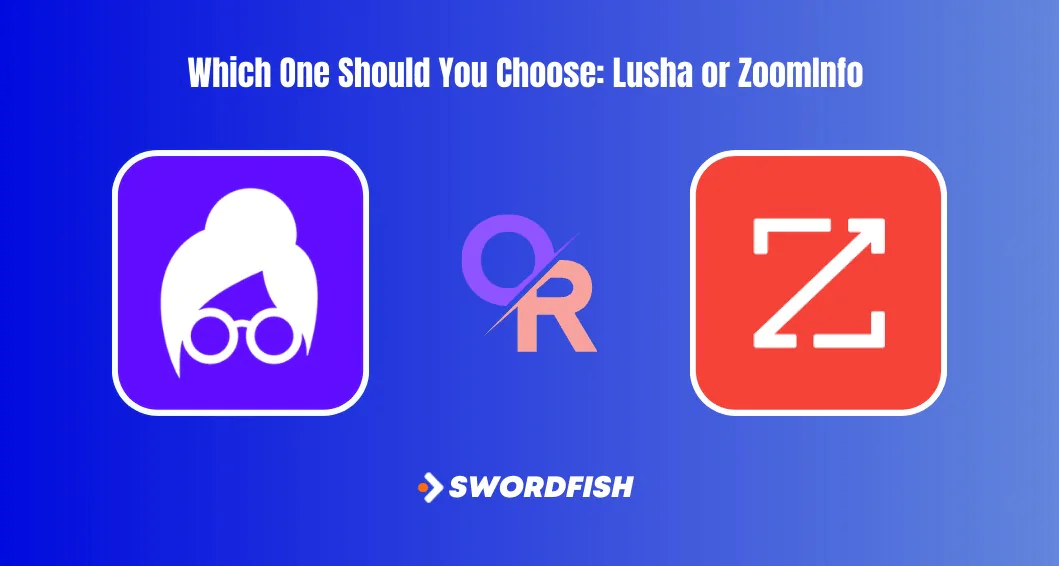
If you value simplicity and are focusing on North America, ZoomInfo could be the right choice. It excels at targeting businesses in this area. With millions of professional profiles and over 135 million confirmed phone numbers, ZoomInfo provides a direct route to lead generation.
On the other hand, if you’re looking to add a European edge to your outreach, Lusha steps up. With 21 million GDPR-Compliant European contacts, it’s an ideal choice for those focusing on the European market. Lusha also provides Enterprise and SMB business profiles, allowing you to zero in on the companies you want to reach.
ZoomInfo takes the lead in CRM integration. If you heavily rely on CRM tools, ZoomInfo’s seamless integration can significantly enhance your lead management process. It ensures your CRM database is enriched with accurate and up-to-date data.
When it comes to time efficiency and team collaboration, Lusha stands out. Its user-friendly platform and seamless integrations make it a breeze for your team to use. Whether you’re working with Salesforce or HubSpot, Lusha ensures that you’re not bogged down by data management.
For businesses on a budget, Lusha’s free plan is a lifesaver. It gives you a taste of what it offers without costing a dime. On the other hand, ZoomInfo leans towards the pricier side, which might be a better fit if you have a larger budget.
Swordfish AI: The Ultimate Contact-Finder Alternative of Lusha and ZoomInfo
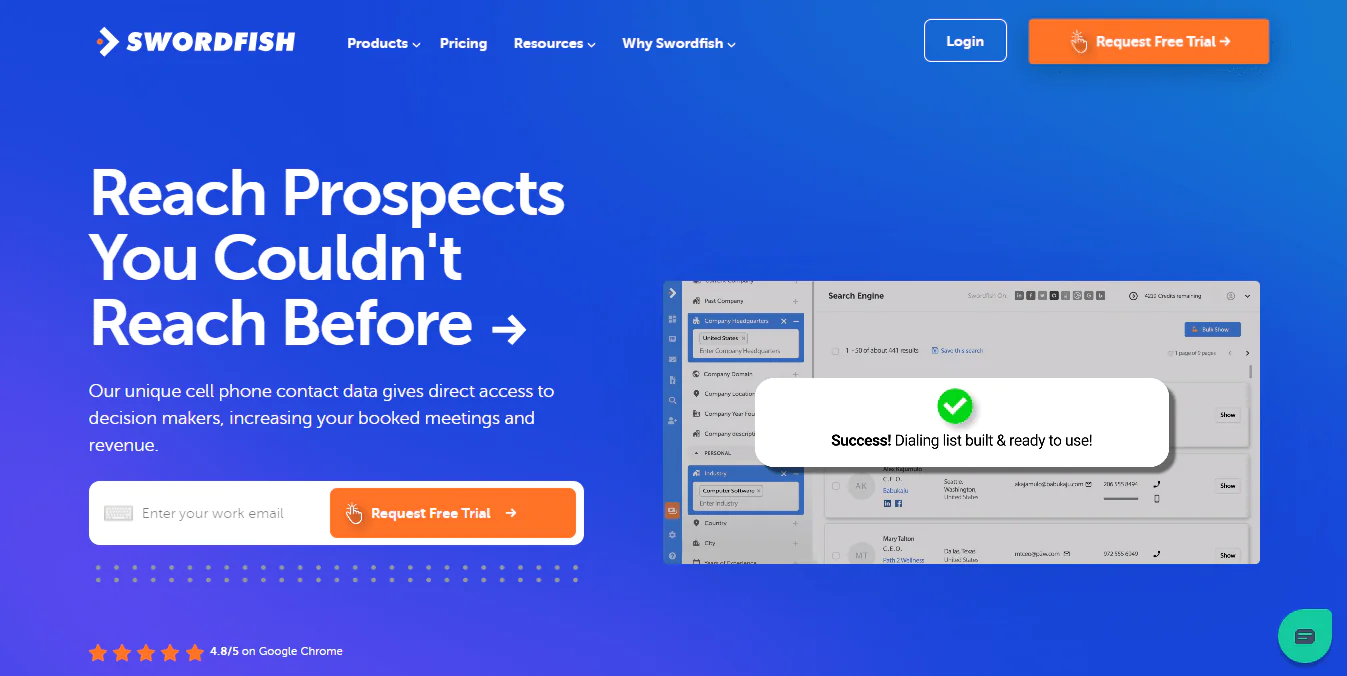
Swordfish AI stands as a prominent contact-finding platform, boasting a comprehensive database with over 3.5 billion meticulously curated data entries, encompassing verified cell phone information and email addresses.
Through collaborations with over 200 active data partners, along with a user base of 70,000 and a staggering 15,000+ Chrome installs, Swordfish AI ensures an impressive 400% increase in cleared candidates, all achieved at five times the speed.
While the specific pricing details remain undisclosed, the fact that esteemed companies like Amazon, Tesla, and Microsoft count themselves among Swordfish AI’s clientele speaks volumes. This suggests that their solutions are adaptable and effective, catering to businesses of various sizes and industries.
Here’s your Swordfish Pricing plans available right now –
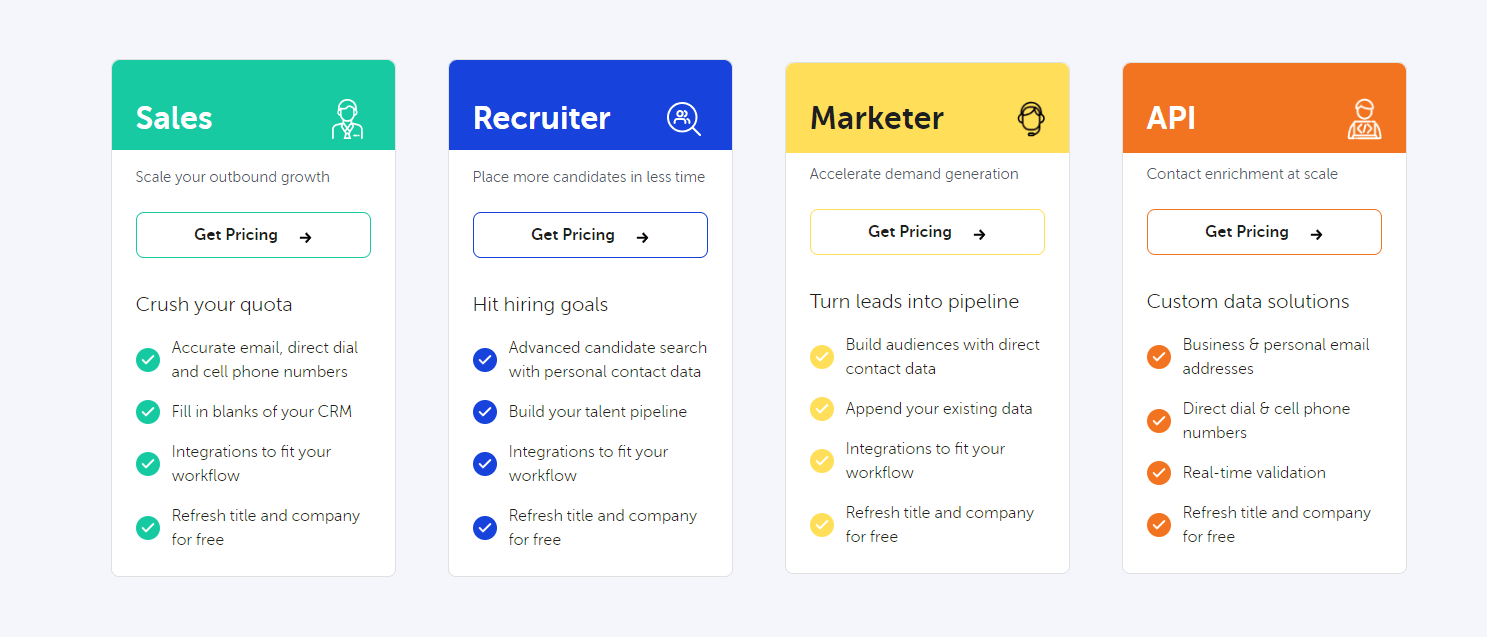
How is Swordfish AI better than Lusha and ZoomInfo?
Swordfish AI excels in providing sales representatives with a time-saving edge, reducing their monthly contact search efforts by over 20 hours. It outshines platforms like Lusha and ZoomInfo with unparalleled contact information, setting it apart in several key areas:
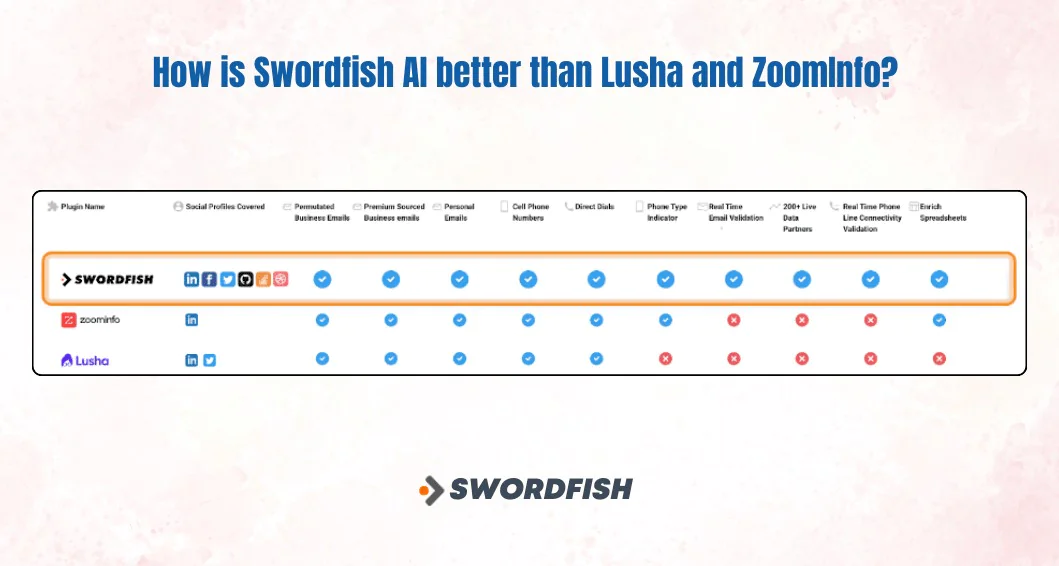
Prospecting Tool
Swordfish’s prospecting tool sets a new standard for efficiency in enhancing sales pipelines, something that Lusha or Zoominfo does not offer.
It simplifies the process of creating dialing or email lists with advanced filtering options, ensuring highly accurate lead generation in a matter of seconds.
Chrome Extension
When compared to Lusha and Zoominfo, Swordfish’s extension is unmatched in its ability to extract contact details from a wide range of online platforms. It includes LinkedIn, Twitter, Facebook, Dribble, GitHub, StackOverflow, Google, and Bing.
File Upload Feature
Addressing gaps in your contact database has never been easier. By simply uploading a CSV file, Swordfish takes the reins, filling in missing email addresses and cell phone numbers.
This powerful enrichment tool slashes manual workload by an impressive 95%. You don’t get the same output and efficiency with other tools.
API Integration
Although Zoominfo is head-on with Swordfish’s API seamless integration, Lusha lags behind. Swordfish connects without trouble into existing systems, enhancing the sales process for various industries.
This includes defense, technology, government, and recruitment agencies. Its reliability and efficiency make it a trusted choice for prestigious entities.
Reverse Search Functionality
Swordfish’s reverse search feature proves invaluable when you have partial information. Swordfish adeptly fills in the gaps, whether it’s names, companies, emails, or social profiles.
Unlike the other two tools, With Swordfish AI, the frustration of dealing with email bounce-backs becomes a thing of the past.
Conclusion
When it comes to finding the right data tool, Lusha vs ZoomInfo, each has its own strengths. Lusha is user-friendly and easily connects with other tools, making it great for quickly finding accurate leads.
ZoomInfo, on the other hand, is a treasure trove of detailed company information. It’s particularly useful for bigger companies or those who really want to dive deep into data.
If neither seems to be your calling, Swordfish AI beams bright with everything that those two tools miss out on.
Take a moment to think about your specific needs and preferences, and you’ll find the perfect fit for your business. This comparison is here to help you make that choice.
FAQs
Can I use Lusha and ZoomInfo together?
Yes, you can! Many businesses find value in using both platforms. Lusha for its quick and user-friendly lead generation, and ZoomInfo for its in-depth company insights.
Which platform is more cost-effective for smaller businesses?
For smaller businesses, Lusha’s pricing plans may offer a more budget-friendly option, especially if they primarily need contact information and basic company details.
Does ZoomInfo offer any specialized features for marketing teams?
Yes, ZoomInfo provides features tailored for marketing efforts, including digital marketing tools and advanced company details that can enhance marketing campaigns.
How often is the data updated on Lusha and ZoomInfo?
Lusha and ZoomInfo both employ continuous data updating processes to ensure the information provided is as accurate and current as possible.
Which ZoomInfo alternative is the best for B2B contacts in 2024?
In 2024, there are several competitive zoominfo alternative options available for B2B contacts. One of the best alternatives to consider is SalesIntel, which offers a vast database of accurate and up-to-date contact information. Another strong contender is DiscoverOrg, known for its high-quality B2B contact data and comprehensive company insights.

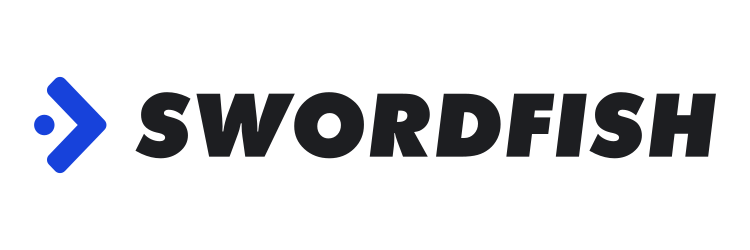
 View Products
View Products


